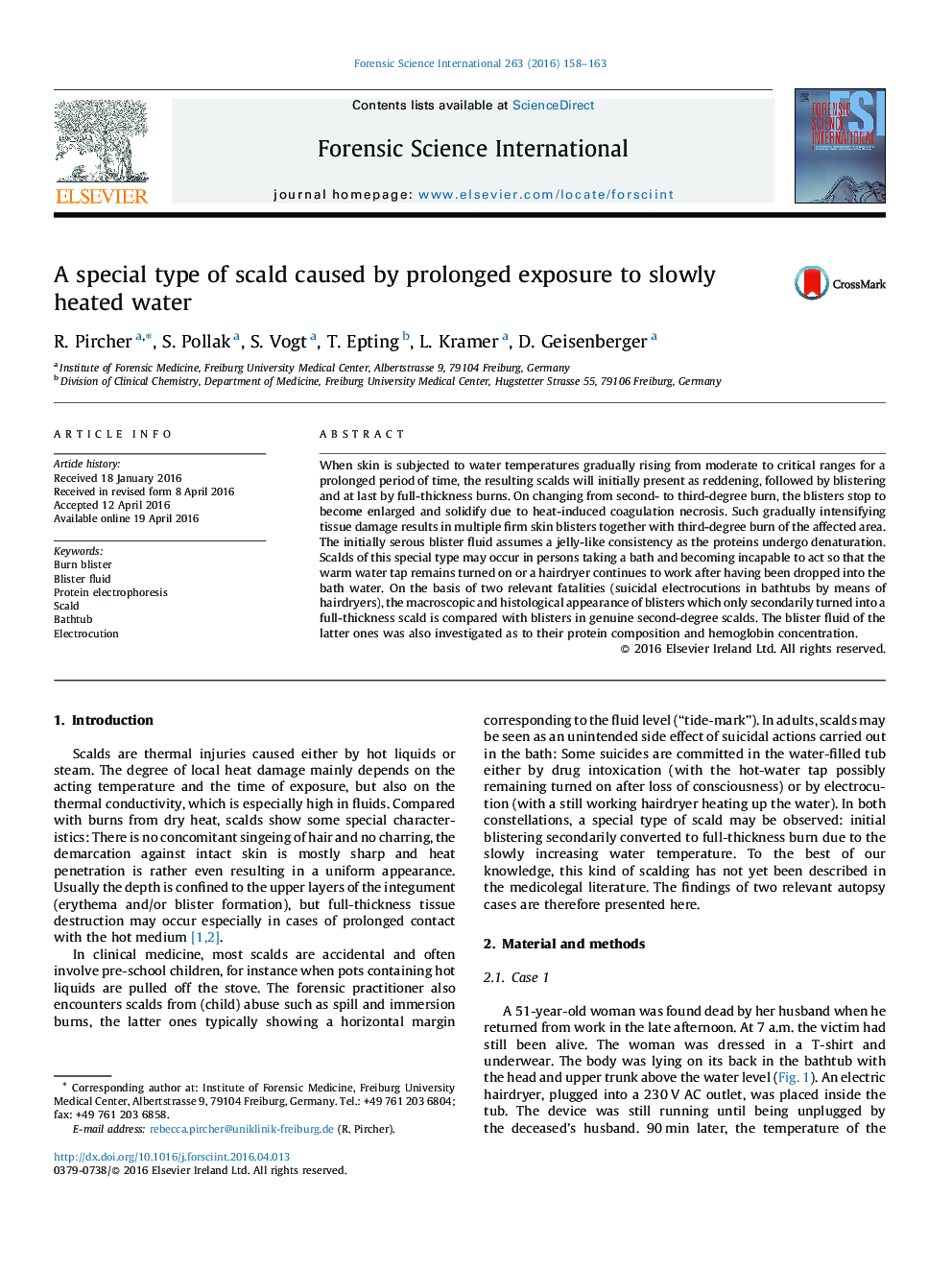| کد مقاله | کد نشریه | سال انتشار | مقاله انگلیسی | نسخه تمام متن |
|---|---|---|---|---|
| 95148 | 160415 | 2016 | 6 صفحه PDF | دانلود رایگان |
• Scalds with solidified blisters are caused by gradually increasing heat damage.
• This special type of thermal injury may occur in bathtub-related fatalities.
• Thermally induced hemolysis may result in reddish marbling of the skin.
When skin is subjected to water temperatures gradually rising from moderate to critical ranges for a prolonged period of time, the resulting scalds will initially present as reddening, followed by blistering and at last by full-thickness burns. On changing from second- to third-degree burn, the blisters stop to become enlarged and solidify due to heat-induced coagulation necrosis. Such gradually intensifying tissue damage results in multiple firm skin blisters together with third-degree burn of the affected area. The initially serous blister fluid assumes a jelly-like consistency as the proteins undergo denaturation. Scalds of this special type may occur in persons taking a bath and becoming incapable to act so that the warm water tap remains turned on or a hairdryer continues to work after having been dropped into the bath water. On the basis of two relevant fatalities (suicidal electrocutions in bathtubs by means of hairdryers), the macroscopic and histological appearance of blisters which only secondarily turned into a full-thickness scald is compared with blisters in genuine second-degree scalds. The blister fluid of the latter ones was also investigated as to their protein composition and hemoglobin concentration.
Journal: Forensic Science International - Volume 263, June 2016, Pages 158–163
